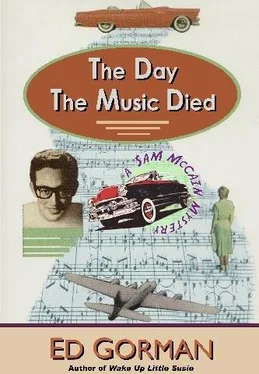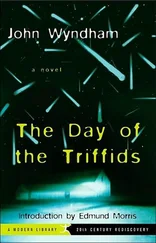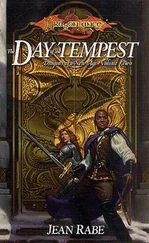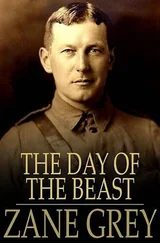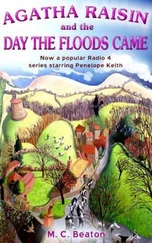Ed Gorman - The Day The Music Died
Здесь есть возможность читать онлайн «Ed Gorman - The Day The Music Died» весь текст электронной книги совершенно бесплатно (целиком полную версию без сокращений). В некоторых случаях можно слушать аудио, скачать через торрент в формате fb2 и присутствует краткое содержание. Жанр: Криминальный детектив, на английском языке. Описание произведения, (предисловие) а так же отзывы посетителей доступны на портале библиотеки ЛибКат.
- Название:The Day The Music Died
- Автор:
- Жанр:
- Год:неизвестен
- ISBN:нет данных
- Рейтинг книги:3 / 5. Голосов: 1
-
Избранное:Добавить в избранное
- Отзывы:
-
Ваша оценка:
- 60
- 1
- 2
- 3
- 4
- 5
The Day The Music Died: краткое содержание, описание и аннотация
Предлагаем к чтению аннотацию, описание, краткое содержание или предисловие (зависит от того, что написал сам автор книги «The Day The Music Died»). Если вы не нашли необходимую информацию о книге — напишите в комментариях, мы постараемся отыскать её.
The Day The Music Died — читать онлайн бесплатно полную книгу (весь текст) целиком
Ниже представлен текст книги, разбитый по страницам. Система сохранения места последней прочитанной страницы, позволяет с удобством читать онлайн бесплатно книгу «The Day The Music Died», без необходимости каждый раз заново искать на чём Вы остановились. Поставьте закладку, и сможете в любой момент перейти на страницу, на которой закончили чтение.
Интервал:
Закладка:
McCain, not when he’s sober. When he’s sober, he can be the nicest man in the world.”
When I hung up, I dropped in another nickel and called my dad and asked him if he could meet me out at Darin Greene’s place in about twenty minutes. And that I’d explain later.
When I went back out to the Olds, Darin was leaning against the front of the car, one heel hooked on the bumper. He had to be cold in his short-sleeved red shirt and tan slacks. He did not look happy.
When I got close, he held his hand out.
“Keys.”
“I’m driving you home.”
“Keys, man. Or I’m gonna make you very sorry.”
I looked at him. He wasn’t a bully, as Kenny had been. But he had a much deeper and meaner anger. He could make me very sorry indeed.
“Sykes is going to be laying for you.”
“I don’t give a damn about Sykes right now, man. I just want my keys back.”
“You want your kids to have to come and visit you in county again?”
That got to him. Say what you would about him, what he was or wasn’t, he was a man who loved his kids.
“You son of a bitch.”
But he got in the car. The passenger’s side.
When we were going again, he reached under the seat and brought up a pint of rotgut whiskey.
“You really need that?”
“You’re pushin’ your luck, man. And that’s no shit.”
“I take it you heard about Kenny.”
“‘Course I heard about Kenny.
Everybody’s heard about Kenny.”
“I don’t think he killed her.”
“What’re you talkin’ about, man, of course he killed her.”
“We’ll see.”
“If he didn’t kill her, why’d he kill himself, then?”
“I was hoping maybe you could help me out a little with that one.”
He glowered at me again. He looked angry, as he often did, but now there was a sense of fear about him, too. I wondered what he was afraid of.
We were out on the river road now, heading toward the trailer court where virtually every Negro in the county lived. The rent is cheap, I guess.
It’s our form of segregation.
“You were his friend, is what I mean. I thought maybe you could help me.”
“You haven’t kept up. Me ‘n’ Kenny haven’t spoken in over a year.”
“Why?”
“None of your business why.”
“Friendship like that, all those years, and it just ends.
That doesn’t make much sense.”
“I don’t know anything about what happened out there. Far as I can tell, he killed Susan and then he killed himself. He got crazy when he drank and from what I hear, he’d been hittin’ it pretty hot ‘n’ heavy.”
We came up on a little hill. On a wide grassy field below were the trailers. They were the small jobs, the kind they’d built before the war. There were maybe three dozen of them. It was a ghetto. Saturday nights, the good colored folks stayed inside all locked up while the predators prowled. I sometimes felt sorry for myself, coming from the Knolls. But what I’d had to put up with was easy compared to the doom that awaited the black kids from Shady Acres Trailer Park.
I found his trailer and pulled up. The yard was picked up and the trailer looked homey with crisp yellow-flowered curtains in the windows.
He looked over at me and grinned coldly.
“You went to all this trouble, man, and I wasn’t no help at all, was I?”
“Nope. You weren’t.”
“And I ain’t gonna be, either.”
I decided to lay it out for him. “I’ll be real interested in what caliber gun killed Susan Whitney.”
The fear was in his face again. “It ain’t none of my business, man. And I could care less about them two.”
I left the keys in the ignition and opened the door. In the rearview, I could see my dad’s blue ‘eb Chevy coupe coming up the road.
I got out, closed the door, and then leaned back in. “You ever find that forty-five of yours, let me know.”
“How’d you know it was a forty-five, man?
Huh?”
But I’d decided to be just as uncooperative as he was. “See you around, Darin.”
Then I walked back to my dad’s coupe.
Eight
I still remember standing on the platform at the train depot and watching my dad wave to us when he came home from World War Ii. I was shocked. My parents are small people. My mom is five-two and has never cleared ninety pounds. But I’d grown up with my mom and was used to her size. My dad was a different matter.
I’d seen a lot of John Wayne and
Ronald Reagan-two of the many brave movie stars who hadn’t actually gone to war-war movies, and so I just figured my dad would be this big heroic kind of guy, too. He’d been gone a long time. Well, he wasn’t big and heroic-looking. In fact, he looked like a kid. He was five-six and weighed maybe 130 and had dishwater blond hair. His khaki uniform looked too big for him, gave him a vulnerability that made him seem even less soldierly. He was an utter stranger to me. The last time I’d seen him I’d been seven years old. I felt sort of ashamed of him, actually, how young and vulnerable he looked in the midst of all these other towering Gi’s. Why couldn’t I have a dad who looked like Robert Mitchum? And I’ve always been ashamed of myself for feeling that. I know that when I see him in his coffin over at the Fitzpatrick Funeral Home, that’s what I’ll think of, how I betrayed him in my heart that first day he came back from the war.
The other thing I always remember about him was how he used to jitterbug with my mother on the linoleum in the kitchen in those good giddy days right after the fighting stopped. They’d play the Andrews Sisters and Ella Fitzgerald and Benny Goodman and Glenn Miller and they’d dance for hours. But he managed. They stayed home a lot, as if they didn’t want to share each other with anybody else. They’d have a quart of Hamms beer on the oilcloth-covered table (i’ve always loved the smell of oilcloth) and the amber eye of the radio would burn far into the night as music poured from its speakers.
That wasn’t too long ago but it was hard to believe it was the same guy. Bald, stooped, nearsighted. The war hadn’t taken nearly as much out of him as his various jobs did afterward. Just as I’d barely recognized him that day on the train platform, I had a hard time recognizing him these days. Small to begin with, now he seemed to shrink even smaller in his gray Penney’s overcoat and blue Irish wool walking cap.
I got in the car. The heater was on. So was Bill Haley. Somehow my dad had picked up a fondness for rock and roll, one not shared by my mom. He was watching Darin slip and slide up to his trailer.
“I wonder what the hell went wrong with him,” my dad said. “I always thought he’d have a nice future. And he’s got such a nice wife and all.” He shook his head. “I s’pose it’s growin’ up out here. How colored people get treated, I mean.” Dad had all the insecurities that go along with being a small and somewhat delicate man. But instead of using them to hate or bully, he’d turned them into empathy and wisdom. He always watched the Cbs Evening News with Douglas Edwards and watched what the white cops were doing to black people trying to ride whites-only city buses. Stuff like that got to him as much as it did me. Even my mom, who didn’t vote because she hated all politicians equally, had tears in her eyes when she saw little Negro kids blasted off the streets with fire hoses and their parents clubbed to their knees.
“I found him over at Paddy’s.”
Dad made a face. “I wonder why he does that. He knows they’ll just throw him out.
Poor bastard.”
He put the coupe in reverse, we whipped backward into a small drive, and then turned back toward town. The coupe was warm and snug.
Читать дальшеИнтервал:
Закладка:
Похожие книги на «The Day The Music Died»
Представляем Вашему вниманию похожие книги на «The Day The Music Died» списком для выбора. Мы отобрали схожую по названию и смыслу литературу в надежде предоставить читателям больше вариантов отыскать новые, интересные, ещё непрочитанные произведения.
Обсуждение, отзывы о книге «The Day The Music Died» и просто собственные мнения читателей. Оставьте ваши комментарии, напишите, что Вы думаете о произведении, его смысле или главных героях. Укажите что конкретно понравилось, а что нет, и почему Вы так считаете.
